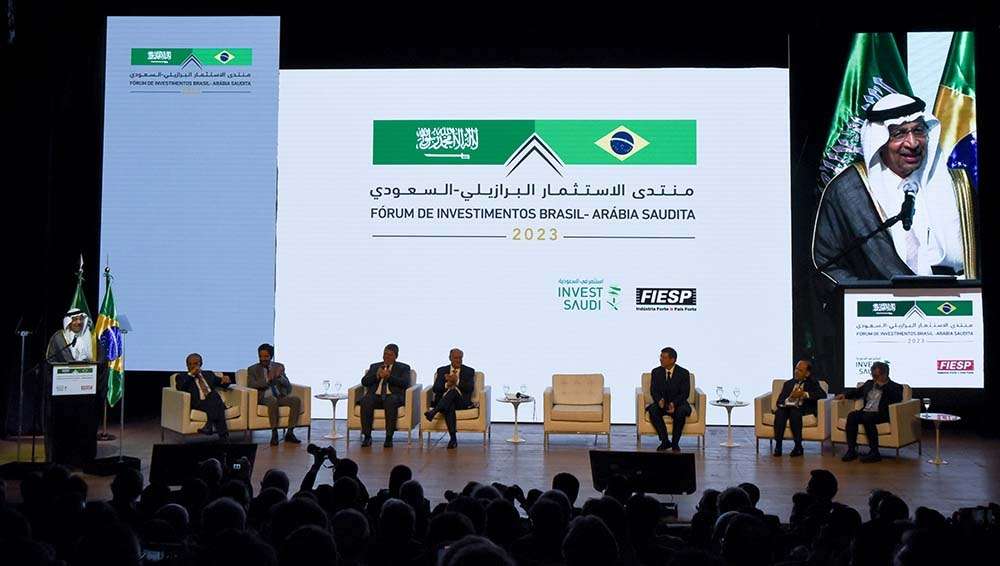
Patricia Marins
The largest Saudi delegation arrived in Brazil to finalize several agreements between the two countries, including defense deals.
One of the key deals was signed between the Saudi Arabian Military Industries (SCOPA) and Avibras, an important Brazilian defense company.
Saudi is developing its own MLRS version and Avibras is going to be part of the project. Some parts of the deals are confidential, but we can presume that it involves:
- Guided rockets for MLRS (40km-160km)
- Cruise missiles with a range of 1500km (Saudi has expressed interest in this project for years)
Additionally, there may be provisions for a solid fuel plant and anti-ship missile technology.
Historically, Saudi Arabia and Iraq have been major buyers of Brazilian weapons.
Recently, the Brazilian company Mac Jee has signed a deal to establish an explosives factory in Saudi Arabia, focused on producing solid fuel for the new Saudi missiles, which are being developed in collaboration with Chinese technology and Brazilian rockets.
Furthermore, another Brazilian arms company, Taurus, has entered the Saudi market through a partnership with SCOPA subsidiaries.
In contrast to the past, Saudi Arabia now seeks investment and partnerships with a focus on technology transfer. This shift can be attributed to their decision to collaborate with Chinese, Brazilian, and Ukrainian entities to develop their independent defense industry.
What does this deal mean?
In the past, Saudi Arabia collaborated with Ukrainian companies on various defense projects; however, they made a strategic decision to enter into a technology transfer deal with China a few years ago.
Despite this shift, some Ukrainian scientists may still be involved in the development of the Saudi anti-air system, although their current status remains uncertain after the events of February 22.
The foundation of Saudi Arabia’s emerging and independent defense industry is now largely built on technology transfer from Chinese, Brazilian, and Ukrainian sources.
The Saudis are actively working towards ensuring sustainability and building a robust supply chain for their defense endeavors.
“All our stakeholders will need to come together to form a healthy ecosystem, including research centers, universities, academic institutions, public, and private institutions. We have a vision to establish partnerships with academic institutions to close the local skills gap in areas like engineering and skilled craftsmanship,” said Al-Ohali (the governor of the Kingdom’s General Authority for Military Industries).
The Saudi industrial defense project aims to generate 100,000 jobs by 2030.”
Among the diverse range of projects in progress, Saudi Arabia is developing anti-air missile systems, Multiple Launch Rocket Systems (MLRS) equipped with long-range guided rockets and cruise missiles, ballistic missiles, and drones.
What will change for the region?
Will these long-range capabilities unbalance the power in the region, considering that Iran has also developed long-range weapons? Unlikely. However, Saudi Arabia’s shift from being an arms importer to becoming an arms exporter could have significant implications for the region.
It has the potential to reshape the dynamics of arms trade and influence the regional balance of power.

Be the first to comment